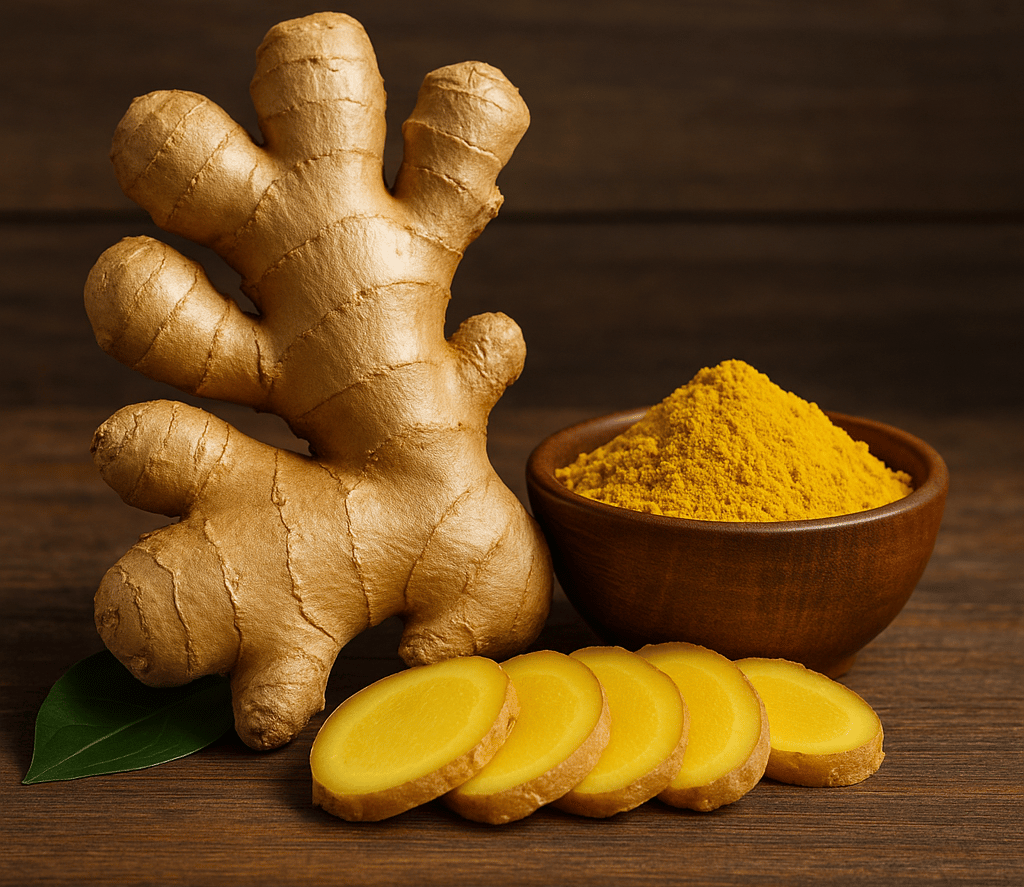EXPLORING THE BENEFITS OF GINGER: A SCIENCE-BACKED “SUPER ROOT”
EXPLORING THE BENEFITS OF GINGER: A SCIENCE-BACKED “SUPER ROOT”
HEALTH
MrTruth.Tv
9/24/20254 min read
Exploring the Benefits of Ginger: A Science-Backed “Super Root”
Few pantry staples have enjoyed the staying power of ginger. Revered in Ayurvedic and Chinese medicine for millennia, this knobby rhizome (Zingiber officinale) has transitioned from ancient remedy to modern “super root,” now studied in clinical labs and stocked in everything from wellness shots to gourmet cocktails. But is the buzz around ginger justified? Mounting scientific evidence says yes.
Below, we explore the nutritional profile, therapeutic benefits, and practical uses of ginger—supported by peer-reviewed research and expert insights.
1. A Nutrient-Dense Powerhouse
While not a major source of vitamins or minerals, ginger is rich in bioactive compounds that drive its health benefits. Chief among them is gingerol, a potent antioxidant and anti-inflammatory molecule. According to a review in Foods (2020), gingerol and its derivatives (shogaols, paradols) are responsible for ginger’s characteristic aroma and many of its therapeutic properties.
Other beneficial constituents include:
Zingerone – noted for antimicrobial effects
Essential oils – may support immune response
Trace minerals – small amounts of magnesium and potassium
These compounds give ginger its distinctive flavor while making it far more than a culinary spice.
2. Easing Nausea and Motion Sickness
One of ginger’s best-documented uses is as a natural anti-nausea agent. Clinical trials consistently show ginger can reduce symptoms of morning sickness, chemotherapy-induced nausea, and motion sickness.
A meta-analysis in Nutrition Journal (2014) found that pregnant individuals taking 1 g of ginger daily experienced significant reductions in nausea compared with placebo.
For motion sickness, a randomized trial in The American Journal of Physiology demonstrated that ginger was as effective as over-the-counter medications without drowsiness.
Tip: Steep 1 teaspoon of fresh grated ginger in hot water for a soothing tea before travel or during pregnancy (with your healthcare provider’s approval).
3. Anti-Inflammatory and Pain-Relieving Effects
Inflammation is a root cause of many chronic diseases, and ginger’s anti-inflammatory power is well supported by science.
In a 12-week study published in Arthritis & Rheumatism, patients with osteoarthritis of the knee who consumed ginger extract reported significant pain reduction compared with placebo.
Laboratory research suggests ginger can inhibit inflammatory pathways like NF-κB and reduce markers such as C-reactive protein (CRP) (International Journal of Preventive Medicine).
Athletes sometimes turn to ginger for muscle recovery. A University of Georgia study found that daily supplementation (2 g) cut exercise-induced muscle pain by up to 25%.
4. Supporting Digestive Health
Ginger stimulates gastric motility, helping food move through the stomach more efficiently—a boon for those with indigestion or bloating. A trial in European Journal of Gastroenterology & Hepatology found that ginger accelerated gastric emptying by up to 50% compared to placebo.
It also has prebiotic potential, encouraging beneficial gut bacteria. Preliminary research in Frontiers in Microbiology indicates gingerols may promote a healthy microbiome, although human trials are still emerging.
5. Cardiometabolic Benefits
A growing body of evidence suggests ginger may positively influence heart and metabolic health.
Blood Sugar Regulation: A double-blind study in Complementary Therapies in Medicine found that 2 g of ginger powder daily significantly lowered fasting blood glucose and HbA1c in people with type 2 diabetes.
Cholesterol Management: Research in Phytotherapy Research demonstrated reductions in LDL (“bad”) cholesterol and triglycerides with regular ginger supplementation.
These effects are attributed to improved insulin sensitivity and antioxidant activity, making ginger a promising adjunct to a heart-healthy lifestyle.
6. Immune Support and Antimicrobial Action
Ginger has long been used to ward off colds, and modern studies support its antimicrobial potential.
Laboratory tests show ginger extracts can inhibit respiratory viruses such as RSV (Journal of Ethnopharmacology).
Its warming, diaphoretic properties promote sweating, a traditional remedy to help the body expel pathogens.
Although it’s not a substitute for vaccination or prescribed treatments, incorporating ginger into the diet may offer mild protective benefits.
7. Potential Role in Cancer Research
Early research indicates ginger compounds might help inhibit cancer cell growth and induce apoptosis (cell death) in certain cancer lines.
A review in Frontiers in Pharmacology highlights promising effects against colorectal and ovarian cancer cells.
These findings are preliminary, and experts caution that ginger is not a cancer cure. Still, its antioxidant and anti-inflammatory properties make it a valuable component of a cancer-preventive diet.
8. Practical Ways to Use Ginger
Incorporating ginger is easy and flavorful:
Fresh root: Add to stir-fries, soups, smoothies, or steep as tea.
Powdered spice: Great in baking, curries, and oatmeal.
Ginger oil or extract: Used in supplements or aromatherapy (check dosage recommendations).
Crystallized ginger: A sweet treat—though watch for added sugar.
Daily intake: Studies suggest 1–2 grams of dried ginger (or about 1 tablespoon fresh) can deliver benefits for most adults. Always consult a healthcare provider before high-dose supplementation, especially if taking blood thinners or facing gallstone issues.
9. Sustainability and Sourcing
Global demand for ginger has surged, with India, Nigeria, and China as top producers. When shopping, look for:
Organic certification to avoid pesticide residues
Fair trade or small-farm sourcing to support ethical labor practices
Supporting sustainable agriculture helps maintain soil health and fair wages for growers.
10. Safety and Precautions
For most people, ginger is safe in culinary amounts. However:
Interactions: High doses may interact with anticoagulants like warfarin.
Side effects: Rarely, heartburn or digestive upset can occur.
Pregnant individuals should limit intake to around 1 g daily and consult their doctor.
Key Takeaways
Ginger is far more than a kitchen spice. From easing nausea to reducing inflammation, supporting heart health, and possibly helping prevent chronic disease, this ancient root has earned its modern “super root” status.
Quick Usage Ideas
Morning smoothie: fresh ginger + citrus
Immune shot: ginger juice, lemon, honey
Anti-inflammatory tea: ginger, turmeric, black pepper
Backed by centuries of traditional use and an expanding body of clinical evidence, ginger deserves a place in your daily routine—whether grated into a stir-fry or steeped in a comforting tea.
Disclaimer: This article is for informational purposes and not a substitute for professional medical advice. Always consult a healthcare provider before making significant changes to your diet or supplement regimen.


